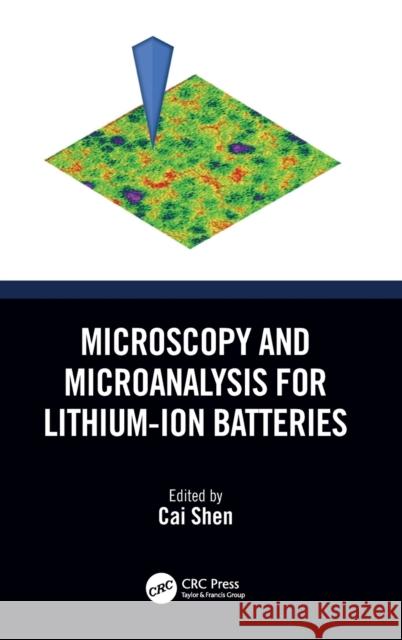Microscopy and Microanalysis for Lithium-Ion Batteries » książka
Microscopy and Microanalysis for Lithium-Ion Batteries
ISBN-13: 9781032289526 / Angielski / Twarda / 2023 / 500 str.
Microscopy and Microanalysis for Lithium-Ion Batteries
ISBN-13: 9781032289526 / Angielski / Twarda / 2023 / 500 str.
(netto: 789,74 VAT: 5%)
Najniższa cena z 30 dni: 730,42
ok. 16-18 dni roboczych.
Darmowa dostawa!
The past three decades have witnessed the great success of lithium-ion batteries, especially in the areas of 3C products, electrical vehicles, and smart grid applications. However, further optimization of the energy/power density, coulombic efficiency, cycle life, charge speed, and environmental adaptability are still needed. To address these issues, a thorough understanding of the reaction inside a battery or dynamic evolution of each component is required. Microscopy and Microanalysis for Lithium-Ion Batteries discusses advanced analytical techniques that offer the capability of resolving the structure and chemistry at an atomic resolution to further drive lithium-ion battery research and development. • Provides comprehensive techniques that probe the fundamentals of Li-ion batteries. • Covers the basic principles of the techniques involved as well as its application in battery research. • Describes details of experimental setups and procedure for successful experiments. This reference is aimed at researchers, engineers, and scientists studying lithium-ion batteries including chemical, materials, and electrical engineers, as well as chemists and physicists.
The past three decades have witnessed the great success of lithium-ion batteries, especially in the areas of 3C products, electrical vehicles, and smart grid applications. However, further optimization of the energy/power density, coulombic efficiency, cycle life, charge speed, and environmental adaptability are still needed. To address these issues, a thorough understanding of the reaction inside a battery or dynamic evolution of each component is required. Microscopy and Microanalysis for Lithium-Ion Batteries discusses advanced analytical techniques that offer the capability of resolving the structure and chemistry at an atomic resolution to further drive lithium-ion battery research and development.
• Provides comprehensive techniques that probe the fundamentals of Li-ion batteries.
• Covers the basic principles of the techniques involved as well as its application in battery research.
• Describes details of experimental setups and procedure for successful experiments.
This reference is aimed at researchers, engineers, and scientists studying lithium-ion batteries including chemical, materials, and electrical engineers, as well as chemists and physicists.











